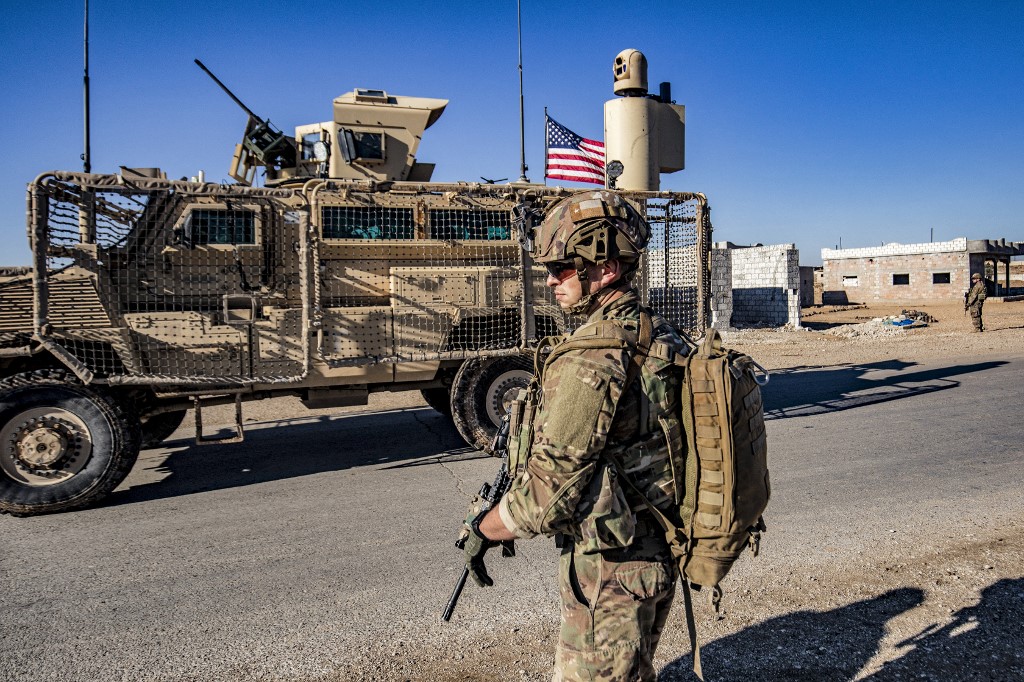The US Department of Defense has denied reports of the construction of a military base in the northern Syrian city of Kobani, near the border with Turkey, following claims by sources affiliated with the Kurdish-led Syrian Democratic Forces (SDF) that the US is expanding its presence in northern Syria amid rising tensions with Turkey over US support for Kurdish militants.
The United States has reportedly started building a new military base in the central part of Kobani, the SDF-affiliated North Press Agency reported on Thursday.
However, these claims were categorically denied by Deputy Pentagon Defense Secretary Sabrina Singh during a press briefing on Friday. She said the US has “no plans to build a base in Kobani” and that she is “not aware” of any troop movements indicating such an effort.
The United States has had military forces in Syria for years, mostly engaged in counterterrorism operations against the Islamic State in Iraq and the Levant (ISIL, ISIS) with the support of the SDF.
US forces had pulled out of Kobani some six years ago and are now back, according to the local reports.
The establishment of a military base requires extensive logistical work. A number of trucks loaded with concrete blocks, prefabricated rooms, surveillance cameras, trench-digging equipment and fuel tanks were seen heading to Kobani.
The fall of Bashar al-Assad on December 8, ending five decades of family rule, has created a power vacuum in Syria, escalating tensions between the SDF and Turkish-backed forces. This security situation may be driving the US to reinforce its presence in the region, potentially to safeguard its Kurdish allies and maintain stability.
The reports of a US base in Kobani and the subsequent denial come amid ongoing tensions between the SDF and Turkish backed-forces in northern Syria.
The Pentagon says it cooperates with the SDF for the sole purpose of combatting ISIL. However, Turkey views the SDF as an offshoot of the Kurdistan Workers’ Party (PKK), designated by both the US and Turkey as a terrorist organization.
Meanwhile, the new government in Syria, working to consolidate authority, has initiated discussions with the SDF on ways to address the crisis in northeastern Syria. The transitional government has expressed readiness for the integration of the SDF into the national forces.
According to a report recently released to the US Congress, Washington seeks to continue supporting the SDF to fight against ISIL remnants in northeastern Syria.
Syrian journalist Sarkis Kassargian summarized his interview on Saudi Arabia’s Al Hadath channel on X: “The new U.S. base is not only for fighting against ISIS, but also to protect the Kurdish region against possible attacks by Turkey.” He added that analysts perceive this as part of the bigger US strategy to reassure Kurdish forces while balancing its relations with Turkey.
Journalist Fehim Taştekin, in an analysis on Gazete Duvar’s YouTube channel, underlined that the current US activities in Kobani are part of a multidimensional strategic confrontation in the region.
He pointed out that the US has increased its support for the SDF and is establishing new bases to influence the future position of the Damascus administration. According to Taştekin, the US is setting up new fortified facilities in Kobani with concrete blocks, signaling efforts to make its presence in the region permanent.
He saw this as a warning against a possible Turkish military operation and underlined the coalition’s efforts to reinforce its presence in the region amid rising tensions between the Kurdish-led SDF and Turkey-backed rebel groups.



